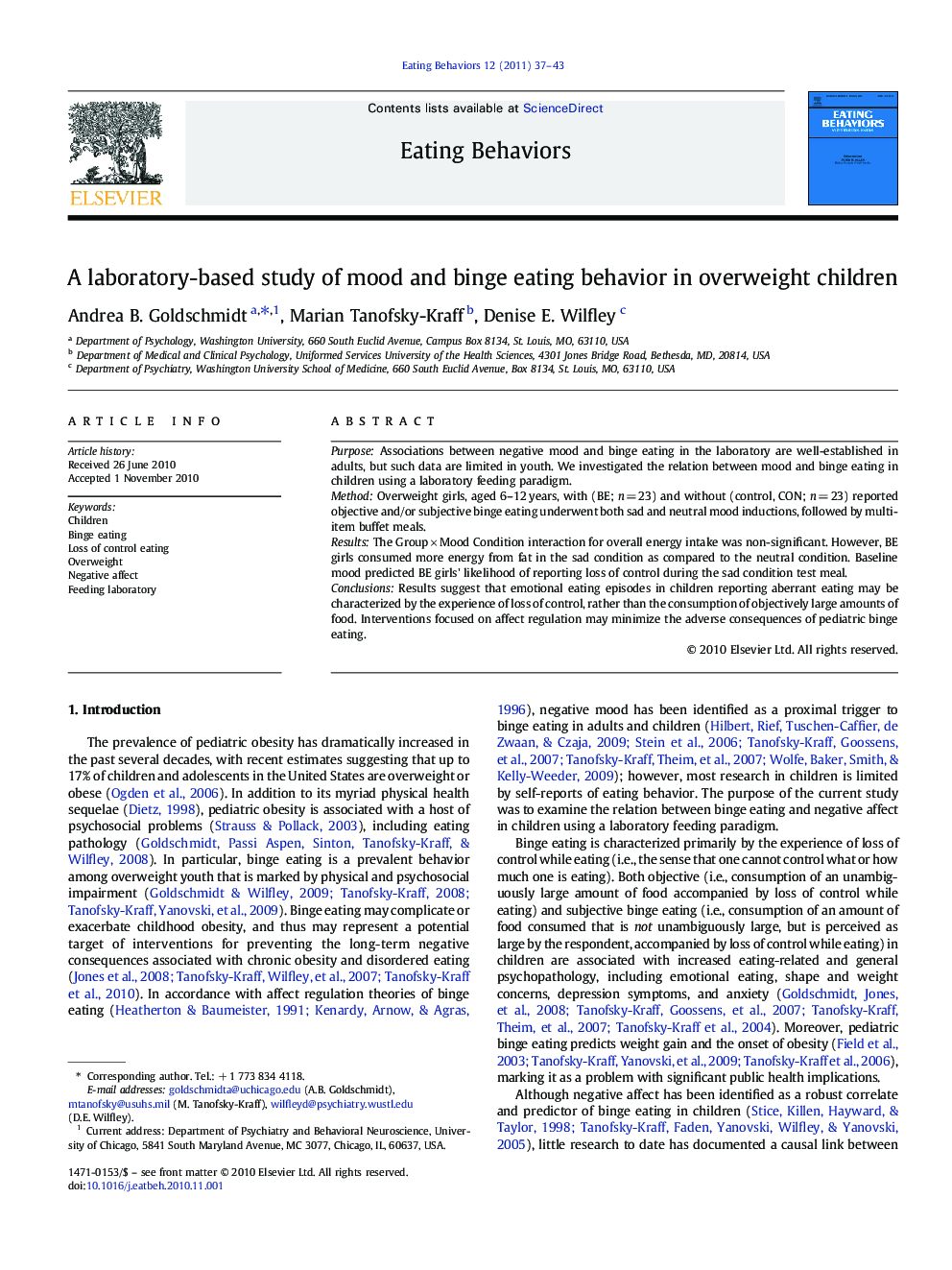| Article ID | Journal | Published Year | Pages | File Type |
|---|---|---|---|---|
| 906710 | Eating Behaviors | 2011 | 7 Pages |
PurposeAssociations between negative mood and binge eating in the laboratory are well-established in adults, but such data are limited in youth. We investigated the relation between mood and binge eating in children using a laboratory feeding paradigm.MethodOverweight girls, aged 6–12 years, with (BE; n = 23) and without (control, CON; n = 23) reported objective and/or subjective binge eating underwent both sad and neutral mood inductions, followed by multi-item buffet meals.ResultsThe Group × Mood Condition interaction for overall energy intake was non-significant. However, BE girls consumed more energy from fat in the sad condition as compared to the neutral condition. Baseline mood predicted BE girls' likelihood of reporting loss of control during the sad condition test meal.ConclusionsResults suggest that emotional eating episodes in children reporting aberrant eating may be characterized by the experience of loss of control, rather than the consumption of objectively large amounts of food. Interventions focused on affect regulation may minimize the adverse consequences of pediatric binge eating.
Research Highlights► We studied the relation between mood and binge eating in overweight girls. ► Energy intake in girls reporting binge eating did not vary by sad or neutral mood. ► Binge eating girls consumed more energy from fat in a sad vs. neutral mood condition. ► Baseline negative mood predicted loss of control while eating in binge eating girls.
